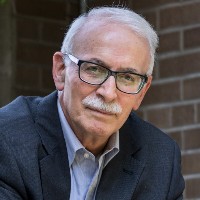Ali Lohi

Professor
Faculty of Engineering and Architectural Science
Department of Chemical Engineering
Toronto, Ontario
alohi@torontomu.ca
Office:
(416) 979-5000 ext. 557028
Expert In
Bio/Research
Every day, when Ali Lohi makes the commute from Waterloo to Toronto, North American car culture is on evident display. Lohi passes hundreds if not thousands of single-occupancy vehicles, each one striking a chord with his ecological consciousness. “It’s a lifestyle problem and a mindset that we h...
Click to Expand >>
Click to Expand >>
Bio/Research
Every day, when Ali Lohi makes the commute from Waterloo to Toronto, North American car culture is on evident display. Lohi passes hundreds if not thousands of single-occupancy vehicles, each one striking a chord with his ecological consciousness. “It’s a lifestyle problem and a mindset that we have here,” he says. “But we can fix it. Even if it takes generations.”
A pillar of Toronto Metropolitan University’s engineering program, Lohi helped shape the school’s undergraduate, master's, and PhD programs while simultaneously holding an adjunct appointment at another university. At Toronto Metropolitan University, Lohi teaches his students strategies for maintaining society’s current living standards while decreasing energy consumption. He practises what he preaches. In his own research, Lohi converts agricultural waste—corn cobs and sweetgrass—into cost-efficient bio oil and synthesis gas (syngas), and finally into butanol.
Lohi believes that a greener future needs engineers and scientists from all different disciplines to work together. “It’s up to everybody to make the world a better place,” he says. “I’m just doing my part.”
Click to Shrink <<
A pillar of Toronto Metropolitan University’s engineering program, Lohi helped shape the school’s undergraduate, master's, and PhD programs while simultaneously holding an adjunct appointment at another university. At Toronto Metropolitan University, Lohi teaches his students strategies for maintaining society’s current living standards while decreasing energy consumption. He practises what he preaches. In his own research, Lohi converts agricultural waste—corn cobs and sweetgrass—into cost-efficient bio oil and synthesis gas (syngas), and finally into butanol.
Lohi believes that a greener future needs engineers and scientists from all different disciplines to work together. “It’s up to everybody to make the world a better place,” he says. “I’m just doing my part.”
Click to Shrink <<